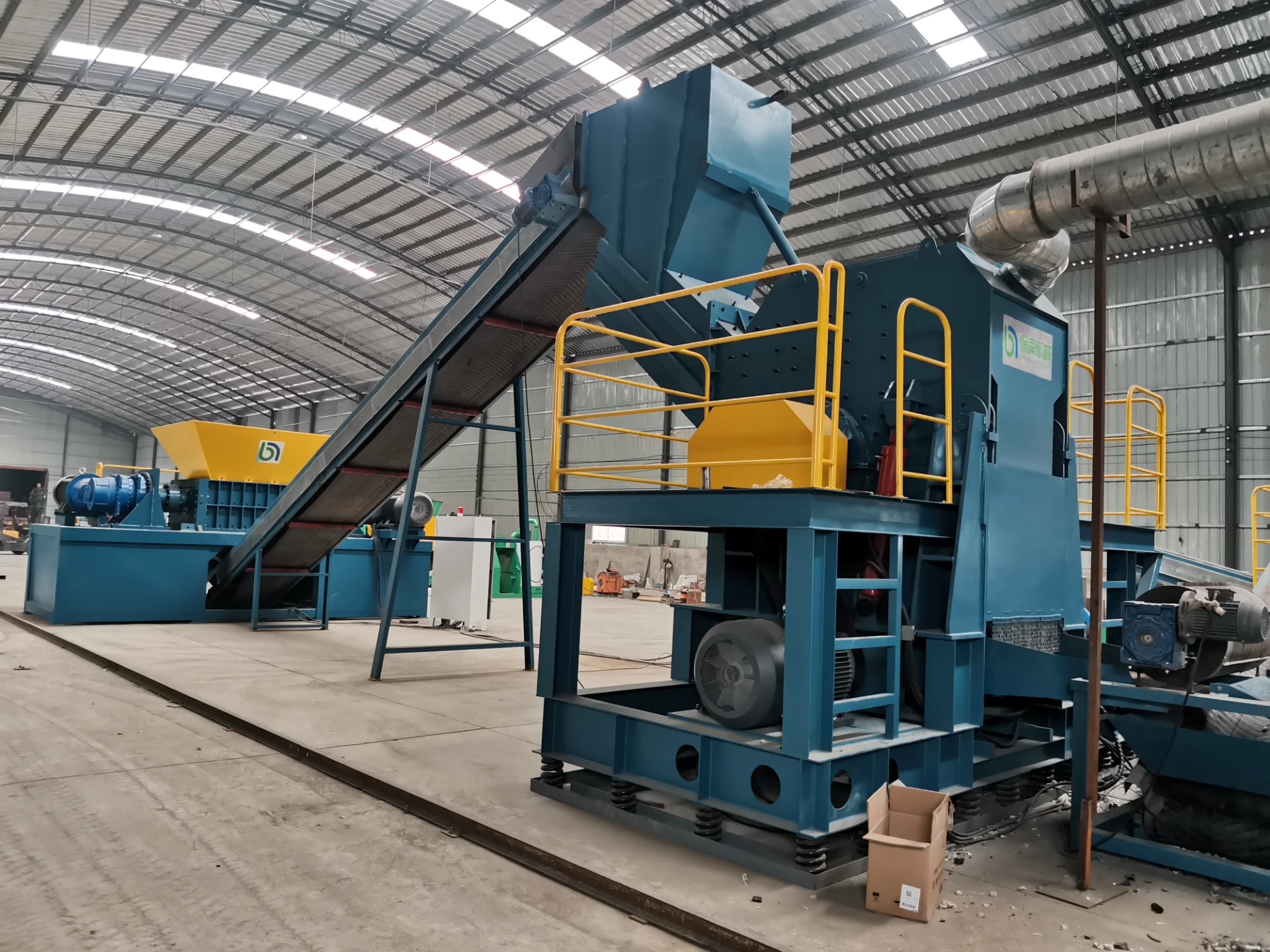

ਨਵੰ. . 14, 2024 18:36 Back to list
The Importance of Scrap Recycling Plants in Modern Industry
In an era marked by rapid industrial growth and environmental challenges, scrap recycling plants play a crucial role in promoting sustainability and reducing waste. As urbanization continues to accelerate, the volume of scrap materials generated across various sectors has surged, necessitating efficient systems for recycling. These plants not only contribute to the conservation of natural resources but also bolster the economy by creating jobs and reducing energy consumption.
Understanding Scrap Recycling
Scrap recycling involves the collection and processing of waste materials, primarily metals, plastics, paper, and other recyclable items, to create new products. This process significantly reduces the need for new raw materials, which are often extracted through environmentally detrimental mining or manufacturing practices. The recycling process typically includes several stages collection, sorting, shredding, and melting (in the case of metals). The sorting phase is particularly vital as it ensures that only recyclable materials are processed while contaminants are removed, thus enhancing the quality of the recycled products.
Environmental Benefits
One of the primary benefits of scrap recycling plants is their positive impact on the environment. By recycling scrap materials, these facilities help minimize landfill waste, which is a growing concern in urban areas. Landfills not only occupy valuable land but also pollute the soil and water through leachate. Furthermore, recycling conserves energy; it is often less energy-intensive to produce goods from recycled materials than from virgin resources. For example, recycling aluminum can save up to 95% of the energy required to produce new aluminum from bauxite ore. This substantial energy saving translates into reduced greenhouse gas emissions, contributing to the fight against climate change.
Economic Contributions
Scrap recycling plants are also significant contributors to the economy. They create jobs in various sectors, from collection and processing to sales and transportation. The recycling industry has been shown to employ millions globally, with jobs ranging from skilled positions in processing facilities to unskilled labor in waste collection. Additionally, these plants foster local economies by procuring materials from nearby businesses and providing them with an avenue for waste disposal. Local governments also benefit from reduced waste management costs, as recycling can lower the volume of waste that needs to be processed in landfill facilities.

Technological Advancements
The scrap recycling industry has witnessed remarkable technological advancements in recent years. Innovative sorting technologies, such as advanced sensors and artificial intelligence, have improved the efficiency and efficacy of recycling processes. These technologies enable recycling plants to sort materials with greater precision, thereby increasing the overall quality of reclaimed materials. Moreover, the integration of automation in processing operations has streamlined workflows, reduced labor costs, and enhanced safety within the plants.
Challenges and Future Directions
Despite their benefits, scrap recycling plants face several challenges. Market fluctuations can impact the profitability of recycling operations, as the prices for recycled materials can be volatile. Additionally, the contamination of recyclable materials remains a persistent issue, making it essential for facilities to implement rigorous quality control measures.
Looking forward, the future of scrap recycling plants seems promising, particularly as public awareness of environmental issues grows. Governments are increasingly recognizing the importance of recycling through regulations and incentives aimed at reducing waste and promoting sustainable practices. Furthermore, businesses are now more willing to engage in circular economy principles, where products are designed with recyclability in mind from the outset.
Conclusion
In conclusion, scrap recycling plants are vital components of a sustainable economy. They not only help mitigate the environmental impacts of waste but also stimulate economic growth by creating jobs and conserving resources. As advancements in technology continue to evolve the recycling industry, these plants will remain essential to achieving a greener future. Promoting and investing in scrap recycling facilities is not just a corporate responsibility; it is an obligation towards future generations to ensure a healthier planet.
Latest news
Troubleshooting Common Eddy Separator Problems
NewsJul.04,2025
The Role of Metal Recycling Plants in Circular Economy
NewsJul.04,2025
The Impact of Recycling Line Pickers on Waste Management Costs
NewsJul.04,2025
Safety Features Every Metal Shredder Should Have
NewsJul.04,2025
How Industrial Shredders Improve Waste Management Systems
NewsJul.04,2025
How Cable Granulators Contribute to Sustainable Recycling
NewsJul.04,2025